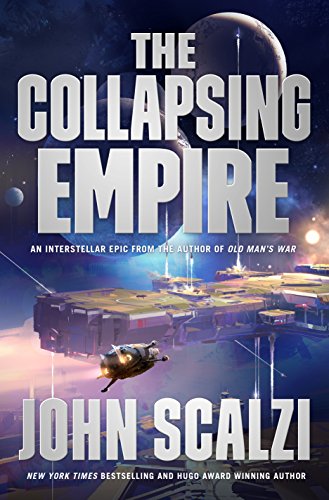Who Fears Death is the story of a young woman named Onyesonwu. It takes place in a future, post-apocalyptic Sudan. Magic is real, and coexists with legacy technology.
Onyesonwu is a child of interracial rape, an Ewu. As a result of this heritage, her skin is the color of sand and she immediately stands out in her culture. Her name translates as "who fears death?"
The story is a rather character-driven journey. The stakes are incredibly personal. Onyesonwu's mother's people are the Okeke. The Nuru, her father's people, are invaders who have subjugated many Okeke villages.
Okorafor pointed to this article on the Darfur crisis as inspiration. Onyesonwu's father, Daib, is a particularly nasty character. He acts as the book's main villain. For much of the story, she tries to reject that he is her father.
A large part of the story deals with confronting her place in society and what it means to be Ewu. As she grows older, Onyesonwu sees herself as a burden on her mother and stepfather. It's a struggle that she pushes against throughout the entire story.
She tries to follow her village's customs, even those her parents disapprove of. As an attempt to increase her social standing within their community, . This creates a temporary rift between her and her parents. But it provides a strong bond with the others undergoing the ritual -- an important element to the story.
I liked this book quite a bit. I'm particularly biased towards first-person novels. In that regard, Who Fears Death was already staged to meet my taste. Much of the book is in the first person, from Onyesonwu's perspective. I loved getting into Onyesonwu's views of the world. It was immediate, tense, and immersive.
It is revealed that Onyesonwu is telling the story to a transcriber. so it becomes questionable how accurate the narration is. Which is great, because I like unreliable narrators, too. It also changed the genre of the story from memoir to possible gospel.
The ending left me feeling like Onyesonwu left an indelible change on her world. She could be a possible messiah figure. It ended with enough ambiguity to let the readers draw their own conclusion. But I would love to see how Onyesonwu affected the two cultures presented in the future.
This was Nnedi Okorafor's first novel for adults. She had written several young adult novels before this one. She does a great job with the tone of the book. I loved how it sucked me in with the beauty of the prose. The chapter length is very well done. They read almost as well crystallized short stories.
While this book was amazing, I wouldn't recommend it to everyone. The content could definitely make some squeamish. I felt uncomfortable during certain portions. Particularly because I was reading out in public.
I realize that caveat is a large one for many people. But it is a good story that shines a light on feeling like an uncomfortable in society. Now more than ever, that's an important factor to think about. If you are all right with the uncomfortable aspects of the story, I highly recommend Who Fears Death.
Onyesonwu is a child of interracial rape, an Ewu. As a result of this heritage, her skin is the color of sand and she immediately stands out in her culture. Her name translates as "who fears death?"
The story is a rather character-driven journey. The stakes are incredibly personal. Onyesonwu's mother's people are the Okeke. The Nuru, her father's people, are invaders who have subjugated many Okeke villages.
Okorafor pointed to this article on the Darfur crisis as inspiration. Onyesonwu's father, Daib, is a particularly nasty character. He acts as the book's main villain. For much of the story, she tries to reject that he is her father.
A large part of the story deals with confronting her place in society and what it means to be Ewu. As she grows older, Onyesonwu sees herself as a burden on her mother and stepfather. It's a struggle that she pushes against throughout the entire story.
She tries to follow her village's customs, even those her parents disapprove of. As an attempt to increase her social standing within their community, . This creates a temporary rift between her and her parents. But it provides a strong bond with the others undergoing the ritual -- an important element to the story.
I liked this book quite a bit. I'm particularly biased towards first-person novels. In that regard, Who Fears Death was already staged to meet my taste. Much of the book is in the first person, from Onyesonwu's perspective. I loved getting into Onyesonwu's views of the world. It was immediate, tense, and immersive.
It is revealed that Onyesonwu is telling the story to a transcriber. so it becomes questionable how accurate the narration is. Which is great, because I like unreliable narrators, too. It also changed the genre of the story from memoir to possible gospel.
The ending left me feeling like Onyesonwu left an indelible change on her world. She could be a possible messiah figure. It ended with enough ambiguity to let the readers draw their own conclusion. But I would love to see how Onyesonwu affected the two cultures presented in the future.
This was Nnedi Okorafor's first novel for adults. She had written several young adult novels before this one. She does a great job with the tone of the book. I loved how it sucked me in with the beauty of the prose. The chapter length is very well done. They read almost as well crystallized short stories.
While this book was amazing, I wouldn't recommend it to everyone. The content could definitely make some squeamish. I felt uncomfortable during certain portions. Particularly because I was reading out in public.
I realize that caveat is a large one for many people. But it is a good story that shines a light on feeling like an uncomfortable in society. Now more than ever, that's an important factor to think about. If you are all right with the uncomfortable aspects of the story, I highly recommend Who Fears Death.






